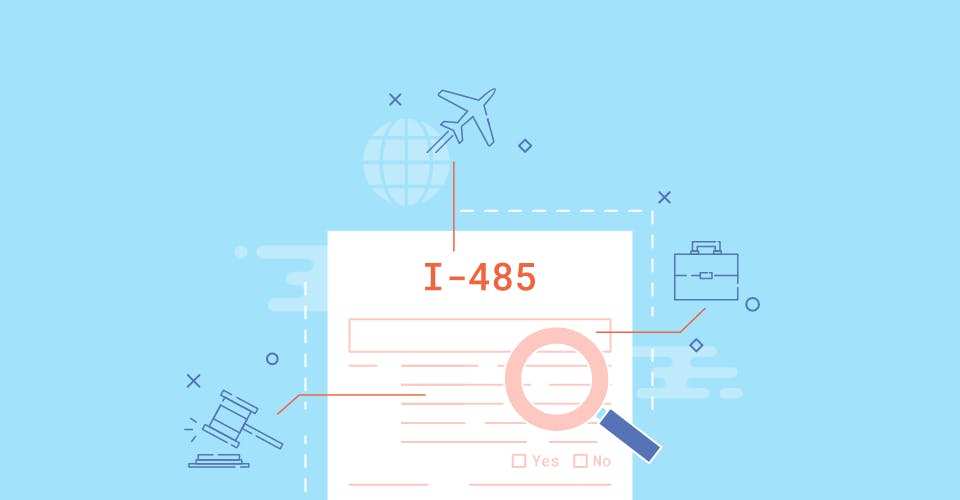The green card process, contingent upon one's I-485 application and appropriate filing, is arguably the most stressful process when it comes to changing one's immigrant status and perhaps trying to remain in the United States. This process involves long wait times, a Biometrics appointment, the ability to stay clean and away from drugs and alcohol for long periods of time, and a display of being a “model” immigrant during the green card interview.
The green card interview can happen several months after initially filing one's I-485 application, and can catch many individuals or even couples off-guard. The interview, after waiting for months, does not last for more than an hour and is grounds for the USCIS to either move forward with your case processing or find reasons to deny the applicant a green card. The process, moreover, is supposed to be straightforward but can involve tricks, or what seems like plain questions from the officers, that often have hidden meanings that may be hard to detect from the immigrant side of things.
As such, many immigrants who are looking to adjust their status have a legitimate case, but can have a bad green card interview and can be subject to even longer wait times and pending cases for more official review.
In order to avoid these complications, applicants need to be aware of the most common problems that one can be faced with in a green card interview, and how to move forward smoothly and confidently, so as to persuade an immigration officer to deny your case or cause more painful wait times.
1. Visa Misunderstandings
Non-Immigrant visas are for the intention of returning to your home country after your visa expires. For example, J-1 Student Visas are temporary in nature, and usually expire after a two year period. In such a visa application, the signatory is technically admitting to return to their country after the visa period has expired, as the individual can no longer reside in the United States. Applicants need to be careful in their green card interview because they should not say that it was their original intent to remain in the U.S. as they have already consented to not doing this if they were a non-immigrant visa holder.
While it may not seem like a big deal, immigration officers consider obtaining a visa on false premises a type of fraud, so be careful in how you approach visa questions and always bring to mind the original parameters that were established when you first arrived in the United States.
2. Bringing the Right Documents
The next issue revolves around a less conceptual, and more simple error when it comes to being organized for the meeting. Because an applicant only has one green card interview, it’s a good idea to bring all of the relevant material in-person to the interview. This includes a recent change of job, which also may result in a recent change in financial situation. For example, bringing pay stubs to a green card interview is highly recommended. You’ll need to also show the interviewing officer that there is a change in your I-485 application, at the time you submitted, from the present, when you present new documentation. A failure to bring such documentation means there is any inconsistency between your application and the actual present case, in which case a “pending” order for more evidence is likely, which will result in longer wait times.
3. Not Bringing a Translator
It should be known that many green card applicants are not native English speakers, and this is perfectly okay. However, applicants with some trouble or difficulty having conversations should seek the counsel of a translator and worry about the costs of doing so later. Having a translator is key to making sure the interview runs smoothly, otherwise, the interviewing officer cannot do their job appropriately and an application may enter the “pending” stage for many months.














